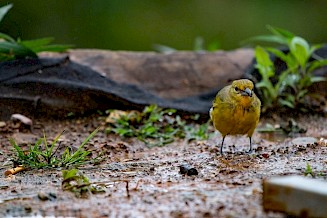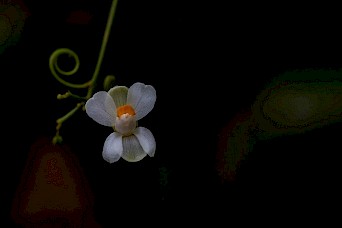Ipieca member Repsol has carried out pioneering biodiversity monitoring during construction of the access roads, drilling pads and drilling of an exploratory well in the Caipipendi area of Bolivia. The initiative enabled Repsol to become more familiar with the surroundings, understand how they affect projects, and lay the foundations to apply biodiversity monitoring in future activities.
Bolivia, with its forested areas that makes up 3.5% of the planet's forests, is home to between 45 and 55% of the world's biodiversity, with over 3,000 species of mammals, reptiles, fishes, amphibians and more than 1,435 birds. However, survival for many of these species is threatened, and conserving their natural habitats has become a vitally important matter.

This is how Repsol's Boyuy-X2 exploratory drilling project, south of the Margarita field in the Caipipendi area became a pioneer in biodiversity monitoring, in order to prevent, mitigate, and offset environmental impacts, become familiar with the surroundings and acquire knowledge applicable to future projects.
[Image, right: Bolivia is in the top 10 most diverse countries for vertebrates, with approximately 3,000 species, distributed as 422 mammal species, 344 reptile species, 642 fish species, 378 Fabian species, and more than 1,435 bird species.]
How the monitoring was conducted
Monitoring was divided into two separate stages. Firstly, during construction of the well's drilling pads and access road, which was done permanently over six months. Secondly, during the drilling stage, which was done quarterly for a year and a half. Conducting biodiversity monitoring throughout the full project lifecycle is necessary to accurately calculate all biodiversity indicators and increase awareness of the wild flora and fauna's behaviours at every stage of the project.
Results of the monitoring
The results of the monitoring underlined the high level of biodiversity and natural wealth in the project area and its surroundings, the new physical characteristics of which - greater solar radiation, wider daily temperature variation, lower relative humidity, increased water runoff, etc. - have an impact on the biological properties of the communities.

A new species was also identified and recorded in the Tarija department: the bicolored-spine porcupine (Coendou bicolor), which is the most southern sighting of this species in Bolivia.
In terms of flora, Repsol developed a procedure to restore sensitive species, identify new plant species and genera, in addition to recovering and re-establishing 1,505 specimens of cactuses, bromeliads, and orchids in the Bolivian Tucumano forest, as well as a total of 1,924 plants in nurseries.
[Image, left: Three genera and 13 species were identified of cactuses and bromeliads, and eight genera and nine species of orchids.]
Sharing knowledge and lessons learned
As more insight was gained on the biodiversity surrounding the Boyuy-X2 project, biodiversity management improved, resulting in the replication of this monitoring and other projects across the Caipipendi area.
Repsol, as part of its environmental and social commitment, is committed to initiatives that help raise awareness among its business units, contractor companies, local communities, and environmental agencies of the various government institutions, in order to positively contribute both to enhanced knowledge and conservation of biodiversity and the world's cultural assets.
Learn more about Repsol's commitment to protecting biodiversity.



